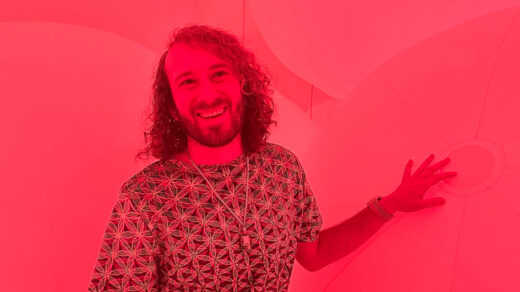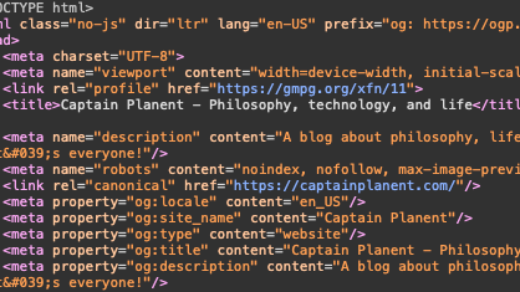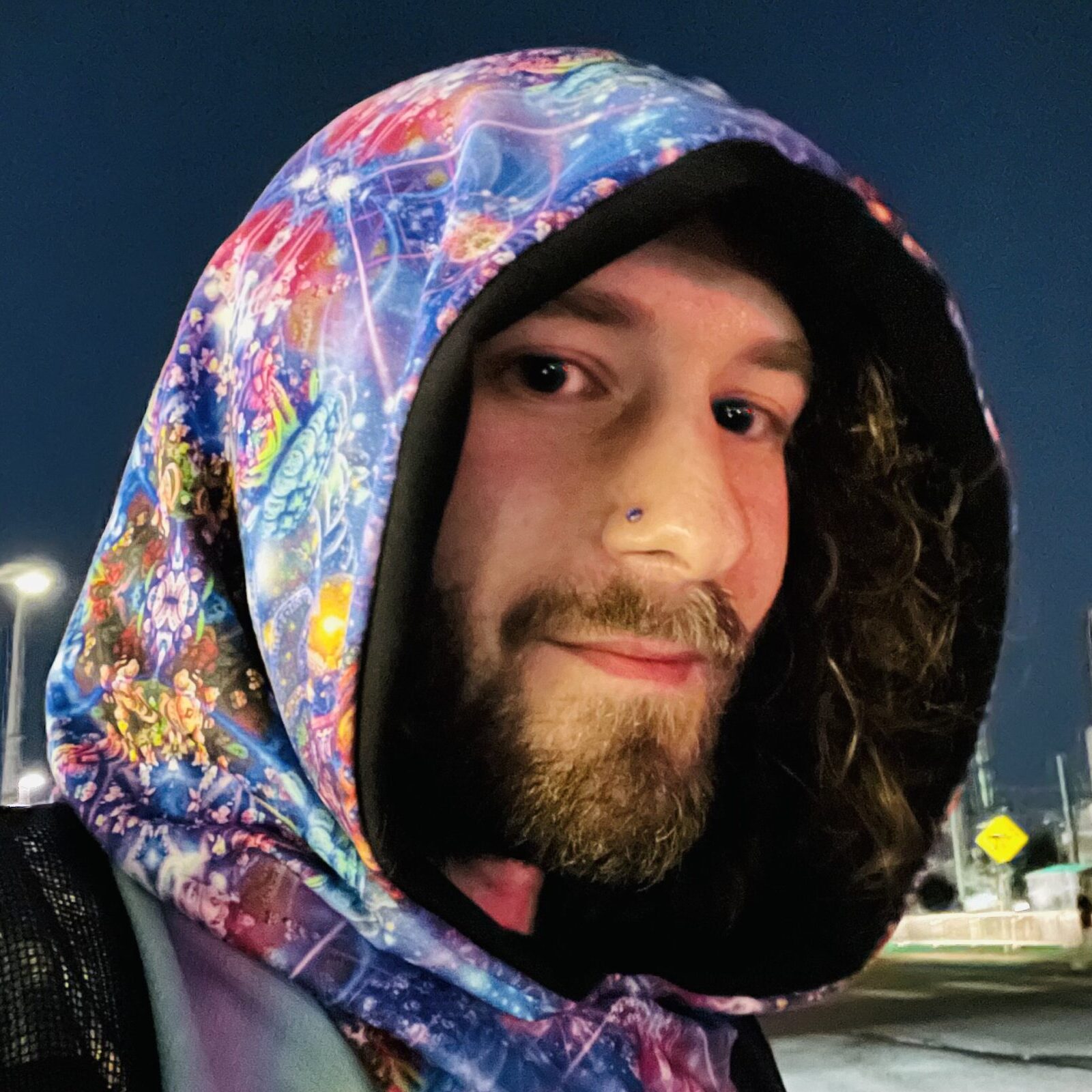Affirmations, Expectations, and Attitude
It’s 7am on a Wednesday in October. One of my coworkers is on vacation and another had an emergency yesterday, and we can assume they won’t be working today. Waking up at 7am, I am thinking to myself, “Half your (primary/direct) team is out today. Get ready for possible hell.” As 8am rolls around and I start my workday, I see that requests have been coming in all morning. My department head reaches out to remind me to ask for help today if I need anything. I put on music, and I get to work. Throughout the day, I try to be conscious of how much work there is to do and how long the current task I’m on might take. If I need help because I don’t have enough bandwidth, I reach out to other members of my department. At 5pm, the workday is over. I feel like the work never stopped. While I feel tired and exhausted, I also feel like I have a good attitude. I don’t feel downhearted by the day. At each unexpected turn, I gave myself the time and patience to decide how I wanted to move forward and if I needed to request some extra help. I internalize that all I can do is my best, and that’s all anyone is asking for from me.
It’s 7am on a Friday in December. My alarm just went off, and I’m getting ready for work. “Only one week until Christmas; I doubt today will be busy,” I think to myself. At 8:30am, someone has an emergency: business has stopped because of a technical malfunction they need me to investigate. After three hours of troubleshooting, I solve the issue. Afterward, requests are pretty tame until 2pm. Then at 2pm, I get a request I think should be easy but ends up being more complex than I first thought. I get frustrated with myself, thinking things like, “This was supposed to be easy, why is it not working?” Thoughts like, “I can’t ask for help; everyone will think I’m stupid for asking for help on such a simple request.” By 5pm, I am exhausted, and I feel like a failure. Yes, I solved the big issue at 8:30, but then I got stuck on the small problem at 2pm. Yes, I feel like I worked less time than the Wednesday in October, but I also feel like I’ve been beaten down all day. Wasn’t today supposed to be easy?
In retrospect, I identify that waking up and thinking, “Today will be easy,” isn’t necessarily a recipe for a bad day. However, when the day gets just a little chaotic, that chaos can feel bigger, more serious, and more urgent. On the other hand, if I wake up expecting chaos, and chaos is what shows up, it’s like my mind is thinking, “Oh there you are, chaos. I’m ready for you; I prepared. What took you so long?” If I wake up expecting chaos, and chaos never shows, well then I get a relaxing day when I wasn’t expecting one. And isn’t that a treat?
I feel confident that what I’m describing is a near-universal human experience. I’m sure all of us have had a moment where we realized that we were experiencing difficulty with a situation because our expectation did not match reality, and reality turned out to be more challenging. I’d like to now transition to discussing how these kinds of expectations can lead to systemic problems.
“I am racist.”
I try to wake up each day assuming that I am racist and that I will do/say racist things. Allow me to elaborate in case this statement causes concern for my audience. I am not saying that I hope I do racist things. I am not saying that there is no point in trying to not be racist. I am not saying I will not try to be better. I am not saying that I think everything I do is racist or racially charged. I am setting the expectation for myself that people I interact with today may tell me I am being racist or something I did/said was racist.
I have thought, “I am not racist” before. When I have thought this, I have felt pride. In my opinion, this is dangerous and a feeling to be examined. In this context, I see pride as ego. I am identifying an “other:” I am not racist; others are racist. I see myself incorporating “I am not racist” into my identity. “I am not racist” leads to other thoughts about how others are racist, about how I am better than them, about how “it’s not hard to not be racist, and others are simply not trying.”
Oh man, that’s not good. If I’m thinking and feeling these things, what if someone in my life says, “Hey, I thought what you just said was a little racist”? I’m not going to be receptive at all because that statement will feel like it’s threatening my identity. “Me? Racist? How could I be racist? I’m not like those white supremacists on social media who say awful slurs! Comparing me to those people is rude! How could you?”
Additionally, if others know that I take pride in my lack of racism, they may feel apprehensive about giving me feedback. When I feel like someone is proud of a way they identify themselves, I feel uncomfortable saying something that I think may threaten that identity. While another person may want to provide me feedback, they may be concerned that I will see this feedback as an attack and that I might respond aggressively. If this dynamic continues, I could develop a bias via the silence: “I can’t be racist; my friend of another race never tells me that I’m racist!” In this way, identifying myself as “not racist” could actually make my speech and actions more racist because I won’t identify my racially driven actions/statements since nobody will point them out to me. I wouldn’t be looking for them on my own, since I already identify as “not racist.”
This can apply to any kind of prejudice: racism, sexism, queerphobia, fatphobia, etc.
Before I can connect this concept with the next idea, I need to provide some context.
The Modern State of Israel
Israel is generally a contentious topic. If you do not know the history of how the modern country of Israel was established post-WWII, I recommend doing your own research and reading. I am not a history buff; I did not study history growing up. I do not recommend constructing an opinion about Israel based on the words of a random philosopher on the internet. I am also going to gloss over a lot and speak with the assumption that the reader has at least a vague understanding of Israel, Palestine, and that they have a violent history. I am an atheist Jew who participated in running a Jewish student organization in college. I will be biased in my explanation. However, I don’t think this piece will make sense if I do not provide the context of how I view the establishment of modern Israel, which began at the end of WWII.
WWII is considered by some to be the end of the era of empires. As the British Empire and others dissolved, the Middle East was a mess. There were regions with cultural cohesion, but the boundaries of the area had not been regulated by anyone from the area in a long time (thousands of years). The Western world powers decided to divide up the Middle East based on what they thought was appropriate.
At the time, the area that is now Israel was called “Mandatory Palestine,” which referred to the League of Nations’ Mandate for Palestine. Zionism is the political movement to establish a Jewish state (of Israel). The modern Zionist movement really began at the fall of the Ottoman Empire around 1920, which is when the area transitioned to British rule. The British Empire made a public statement in 1917 (the Balfour Declaration) supporting the establishment of a “national home for the Jewish people” in Palestine. At the end of WWII, the United Nations created a committee to prepare for the establishment of the two states, Israel and Palestine, in the area that was Palestine. Personally, I see this as the Western world presenting the Jewish community with a metaphorical consolation prize: “After thousands of years of persecution, hopefully culminating in the Holocaust, we would like to give you the country you’ve always wanted.” In 1947, communities began discussing how to establish the states. The Palestinian and Arab communities, who had a larger population in the area at the time, rejected what the Jewish and Western communities proposed. When discussions (and violence) did not lead anywhere, the Jewish community moved forward with their two-state plan. Since the Jewish community had the support of the Western world and the UN, Israel and Palestine were established. If you ever hear about the “West Bank” or the “Gaza Strip,” these are Palestine. In 1967, Israel began its ongoing occupation of Palestine after the Six-Day War. War and violence are not good. I am not trying to say Palestine and its leaders are 100% innocent. However, when the media reports that Palestine is attacking Israel, they often forget to mention that it is Israeli-occupied Palestine attacking Israel.
Thousands of years ago, Jews lived in the area that is now Israel. After the fall of the Second Temple (~70 BCE), Jews never really returned as a community to the area until the end of WWII. While the Israeli government is Jewish-run, Jerusalem is split into sections for each religious community. The location of what was the Second Temple is in the Muslim section, and Jews cannot go there. If you’ve heard of the “Western Wall,” this is the wall of the Second Temple that fell, and it is on the border of the Jewish and Muslim neighborhoods. Jews go there and put prayers in between the bricks of the wall. The people who started modern Israel had never lived in Israel before, they had never known any relatives who lived there, and nobody had accurate stories of living there. So, why all of a sudden move hundreds of thousands of people from different countries there? Why would people who are not from Palestine work so hard to break Palestine apart and move a bunch of Jews to the area? And why now? Why the sudden support for Zionism? Jews had been trying to return to the area for thousands of years.
Various people and countries were involved in these decisions. Saying, “It was all for x reason” seems shortsighted and like it doesn’t give credit to all the people involved. However, today, I am comfortable saying that the US wants a presence in the Middle East, and they support Israel to get it. By supporting and protecting Israel, the US has a presence in the Middle East without conquering or annexing another country, actions we can assume the international community would reject. Israel is an optimal spot for the west geographically, as resources can flow back and forth from Europe. Israel cannot afford to defy or betray the US because the US is the only way it can survive in such a dangerous and precarious geopolitical position. The US funds and supports most of the Iron Dome project (Israel’s incredibly effective antimissile defense system). Considering how Israel established itself and the relationship the US has created with them, I see Israel as a victim and a perpetrator.
Whatever the solution to this is now, it is not to kick Israelis out of the area and dissolve the country because Israelis have homes and cultures too. A bunch of people from different countries were dropped there and told to start a country with the support of the US, the world’s new superhero (at the time). Since they all spoke different languages, they chose to use the only language they all had in common: traditional, ritual Hebrew. (This is how Hebrew became the only dead language to be revived into a full, speaking language.) Now their grandchildren are starting families there. They are people with lives. So are Palestinians. But now it’s not as straightforward as the Israelis just “going back home.” It is their home too.
With that context out of the way, let’s return to the concept of “I am not racist.”
Zionism is not Judaism
Israel’s government is historically conservative and unfriendly to Palestine, which is hopefully already obvious by their ongoing occupation of Palestine. I don’t want to go into all the nuances and history, but it is my overall opinion that Israel is unfair to Palestine and that Israel has more geopolitical power in this situation. Many Israelis see this too, and they’re not happy with the government. I was able to hear these views firsthand during my trip to Israel in 2014.
Back in the US, we don’t hear any of this in our media. The narrative I hear is: “Israel, a peaceful country founded on a pure religion of victimhood, is under attack by its neighbors [Muslims], and we must protect Israel at all costs. Never speak ill of Israel, or else you are an enemy of peace.” As a Jewish person, hearing this, I feel like a pawn, like a tool, like a piece of sympathy porn. By using sympathy from the Holocaust, the atrocities I touched on above are not questioned. I’ve noticed this messaging most often comes from the political right in the US, often from the mouths of people who identify as Christian. While there are Jews who express this opinion, there are not many Jews in US politics at a federal level. Additionally, at this point, it would be political suicide to express any other opinion about Israel as a US politician, so we generally only hear about Israel on a national stage when it is being spoken of in this way.
A key part of this narrative is equating anti-Zionism with antisemitism. I am not a Zionist. However, as I have stated, this does not mean that I think we should destroy Israel or suddenly remove all the Jews from it. And I know many Jews who have similar views to mine. But that’s not how anti-Zionism is marketed in the US. Here, if you don’t support Israel, then you don’t support Jews. Basically, the logic goes: “If you sympathize with Palestine, then you are against Israel, and if you’re against Israel, then you’re antisemitic, so you hate Jews.” If necessary, it will even start, “if you sympathize with a Palestinian person.” This prevents a lot of us from even considering supporting Palestine. We don’t want to be viewed as antisemitic. Antisemitic people are gross and are punished by society; we don’t want to be that.
There are people in Israel who support Israel actually talking to Palestine and trying to lay down arms for good. But those people do not have power in Israel. There was significant pushback against the government in 2022 after a ceasefire failed. The Israeli prime minister and administration at the time, who had been in power for a while, got very nervous they were going to lose their power. (While temporarily losing the seat in 2022, the current prime minister is the same person it has been since 2009.) Earlier in 2022, Russia invaded Ukraine, and I started seeing conversations online in which people were comparing Israel and Russia, pointing out how Israel isn’t quite as innocent as we all seem to assume it is. Soon after these conversations started, an online community I followed for Jewish memes become flooded with memes and comments about antisemites. These comments came out of nowhere. A meme might be about someone’s favorite Jewish desert, and the comments would be flooded with very specific, tribalist language about antisemitic people. The comments expressed opinions like, “Antisemites will try to tell you that you can criticize Israel and support Jews, but this just isn’t true. Antisemites are fooling themselves into thinking this is possible.” This internet community was for sharing jokes between Jewish people about Jewish culture and traditions—for example, poking fun at awkward moments that might happen during a holiday, etc. After the invasion of Ukraine began, it became a cesspool of anti-antisemitic propaganda. Looking back at the online trends during the 2016 election, I can’t help but notice similarities. To me, it seems like a group or government was trying to hide or shift public opinion by bombarding this online community with very specific viewpoints. This way, to a casual observer, it might appear that this view is more popular than it really is. I ended up leaving that community because I didn’t feel there was room/space to discuss Jewish culture and heritage anymore.
What I see is we are peddled this narrative about Israel and Palestine (Israel is an innocent victim) to keep critical conversations about Israel’s actions at bay. This way, the US can continue to have unfettered access to Israel and thereby the Middle East. Because not having access might prevent Israel from defending itself against antisemitic neighbors (this is part of how the narrative is reinforced). Our victimhood from past atrocities is used as a shield by the United States so that it can do as it pleases in the Middle East. Right-wing Jewish tokenism radicalizes the American masses to hate Palestine and idolize the Jewish faith, while doing nothing to actually combat antisemitism. Being idolized can really inflate an ego. I think us Jews ate it up. And I think it’s time for a stomach pump.
“Never Again”
Passover is a holiday in spring which recognizes and celebrates the Jewish Exodus from Egypt. The story is that Jews were slaves in Egypt, and the prophet Moses led them out of Egypt and out of slavery (with the help of God). Passover is eight days (traditionally seven in Israel), but everyone gets together for the day of the Seder. The Seder is a meal during which the story of the Exodus from Egypt is retold, and we eat food that represents parts of the story. A rabbi or respected family member will tell the story, and at the end, we all exclaim, “Next year in Israel!” This is to say, “We fled Egypt for freedom, and perhaps one day we will be able to return to our home and celebrate freedom in Israel.”
Historians estimate that Passover has been celebrated since around 500 BCE. After WWII, Passover took on a new meaning. Yes, we tell the story of the Exodus from Egypt, but that was a long time ago. It’s hard to feel a connection with the antisemitism and struggles of the ancient world. After WWII, Passover was connected to the Holocaust. This is the only Passover I’ve ever experienced since I wasn’t alive pre-WWII. After completing the story of the Exodus, we always bring the message back to the Holocaust and modern antisemitism. To paraphrase, the messaging from the rabbi is usually something like: “We, as Jews, know persecution. The Holocaust was less than 100 years ago, and we are still recovering. We must never allow something like this to happen again. We are sensitive to persecution because of our history of experiencing it. We rise above, and we defend others. We cannot let this happen again. ‘Never again.’” Following this, everyone seated repeats, “Never again.” But this is a lie, isn’t it?
When I was in college, I was reading articles about children in Iraq who were growing up never knowing a day without US occupation. The first time I heard “never again” as an adult, we knew this information about Iraq. A few years later, the media was reporting on the abuse of Uyghurs by the Chinese government. Before I was an adult, there was the 1994 Rwandan genocide. I could go on and on; the world does not have a lack of atrocities. My entire life, though, Israel has occupied Palestine. I have never heard “never again” when Israel was not occupying another country. This does not seem right to me. It does not seem right to say, “Next year in Israel,” and then a few minutes later say, “Never again.”
In my experience, it feels good to say, “We are familiar with persecution, and therefore we do not allow persecution. We stand tall and help the world be a better place. When it comes to the evils of persecution, we say: never again.” Those words inspire pride. But they are also a lie. We have no right to say “never again,” because we are persecuting right in our backyard. “Never again,” to me, feels like saying “I’m not racist.” We have accepted the message that we are a pure, loving community. In this country, it is considered offensive to question Jewish culture, even as a Jew. This provides a shield for our ego. The world around us is stopping others from challenging us to look critically at our culture and messages. I do not want this. I want to be challenged. I want to be told if I am hurting others because I want to stop hurting others.
This Passover, I will not say, “never again” if I am prompted. I will think of the atrocities happening all over the world. I will think of the misinformation and propaganda that encourages me to look away from those atrocities or consider them to be something happening “far away” to “other people.” This Passover, when I hear “Next time in Israel,” I will think of Palestine. I will think of what Israel does to its neighbor, to the people who live there. I do not have power in the Israeli government. The Israeli-Palestinian conflict is not something I have the power to influence. But I at least have the power to stop myself from thinking that I am somehow above it.











I especially resonate and feel connection with you when you say, “I want to be told if I am hurting others because I want to stop hurting others.”